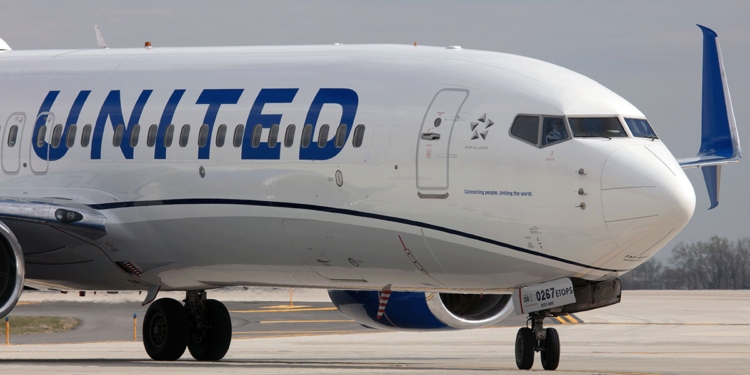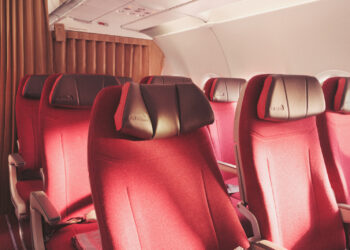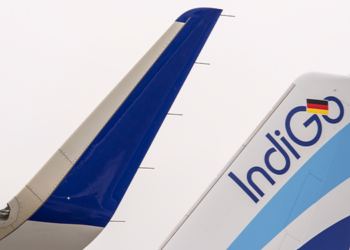US-based, United Airlines today introduced a new domestic first-class seat that includes a wireless charging station in every armrest.
The new United First® seat – which also features vegan leather upholstery, 13-inch seatback screens and 18-inch tray tables, Bluetooth connectivity, privacy screens and an ergonomist-designed cushion – debuts on its first 737 this month, and customers will continue to see it rollout this summer. The airline expects the new seat to be on 200 domestic planes by 2026, including 737 NGs, A321neos and 737 MAXs.
“This new United First seat is designed around the modern traveler – more charging options, bigger spaces for devices, food, drinks and personal items and extra privacy,” said Mark Muren, United Managing Director of Identity, Product and Loyalty. “As we evolve the onboard experience, we’re upending old industry norms and anticipating future needs to accommodate the new ways people live and travel.”

Passengers can quickly charge their multiple electronic devices at once with three types of charging docks in each seat – wireless, AC household-style outlet and USB-C. The wireless charger is located in a compartment of the armrest to give the passenger line-of-sight to notifications and free their hands and tray table.
A growing number of customers prefer a two-screen experience where they use a personal device and a seatback screen simultaneously, so United is upleveling the experience. The 13-inch, high-definition screens are Bluetooth capable and include a remote for those unable to reach the touch screen.
In addition to installing the new seats, United will update existing domestic first class seats on more than 200 planes by 2025. United First seats on select 737, A319 and A320 aircraft will be redesigned with new seat cushions, vegan leather upholstery and winged headrests.
The announcement marks United’s first update to domestic first class seat design since 2015. The new United First seat was built with a team of experts, including United’s engineering and inflight teams, University of Michigan biomechanics researcher Dr. Matthew Reed and design firm Priestman Goode.
Source: UNITED





















